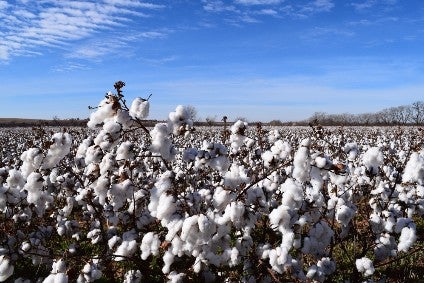
The US Cotton Trust Protocol’s mission is to bring quantifiable and verifiable goals and measurement to the key sustainability metrics of US cotton production.
It aims to to set a new standard in sustainable cotton production where full transparency is a reality and continuous improvement to reduce cotton’s environmental footprint is the central goal.
“During our second year we doubled the number of US cotton growers in the programme with an estimated 1.1m cotton acres enrolled,” says Dr Gary Adams, president of the US Cotton Trust Protocol. “Our grower members are global leaders when it comes to sustainable cotton production, and as supply chain membership continues to grow, producers are encouraged to join the initiative to help ensure there is enough cotton in the system to meet demand.”
The initiative, which is voluntary for US cotton producers, reports on six key sustainability metrics from the farm level to deliver against science-based targets and improve performance. The programme’s core values include a commitment to US cotton’s legacy of authenticity, innovation and excellence, environmental stewardship, caring of people, and personal and corporate integrity.
The six key metrics to validate sustainability performance are:
- Land use
- Soil conservation
- Energy use
- Greenhouse gas emissions
- Soil carbon
- Irrigated water use
By 2025, the organisation also wants to reduce water use by 18%, greenhouse gas emissions by 39%, soil loss by 50%, and increase land use efficiency by 13% and soil carbon by 30%, while decreasing energy use by 15%.
The Trust Protocol has welcomed more than 600 brand, retailer, mill and manufacturer members since its launch in 2020. This includes J.Crew, Madewell, Levi Strauss & Co and, Gap Inc. as well as global apparel manufacturer Gildan.
Earlier this year, the US Cotton Trust Protocol was recognised and published in the standard mapping process by the International Trade Centre (ITC) in a move it said gives brands and retailers greater choice when it comes to sourcing sustainably grown cotton.



